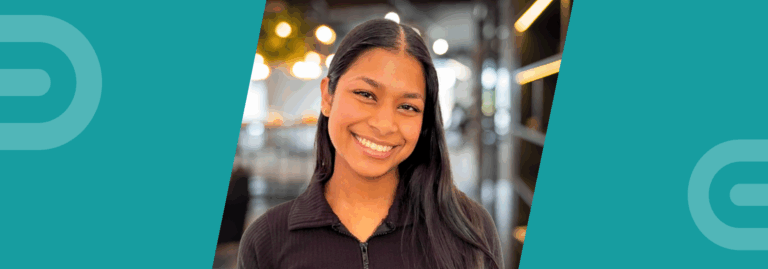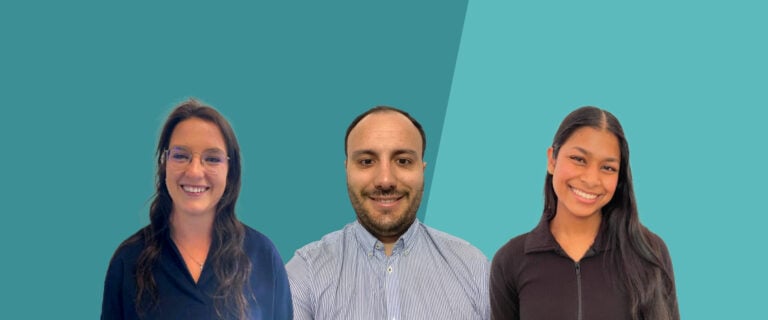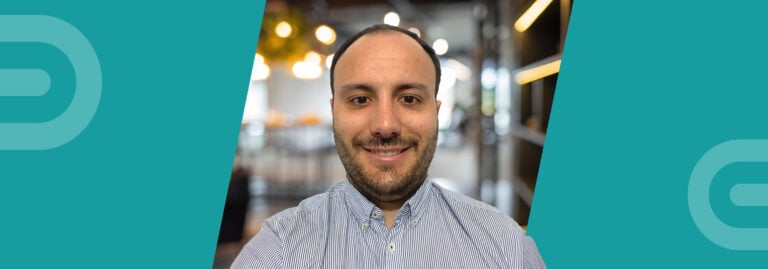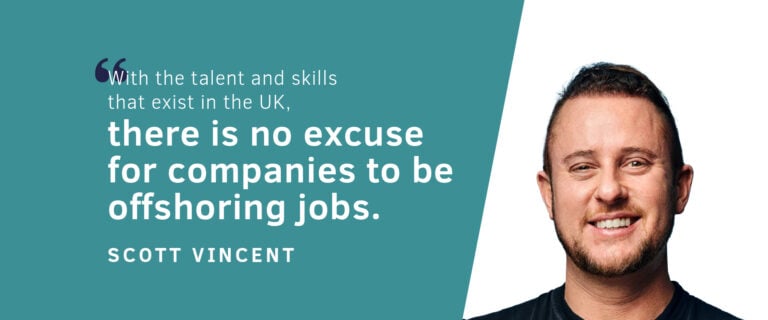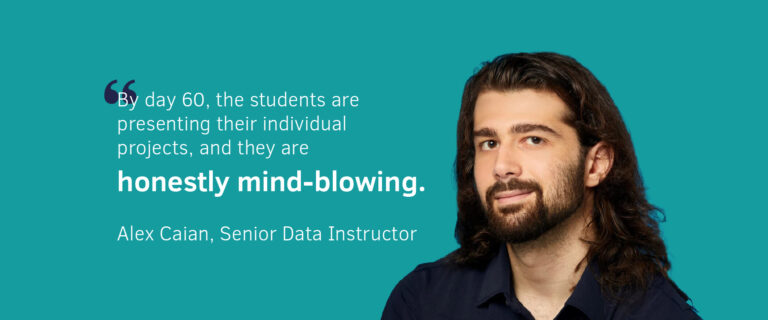We caught up with former footballer, Matty, about how Digital Futures supported him into pursuing his ambition of working in data analytics.
Tell me about your background. Was technology always the career path you were considering?
No, not at all. I actually played Academy football all the way through my childhood and teenage years until I was 18. I started at 6 years old at Manchester United and I bounced around a few other clubs – Crewe, Shrewsbury and Chester. I was released a number of times and was always supported in finding another team but the process is brutal, especially in terms of how young you are at the time. You become friends with people and then next season you or they are gone and you never see them again. It did give me the mentality of never giving up but I ended up leaving Chester on my own terms at age 18, as I wanted to go to university.
Coming out of that football Academy system can be pretty tough. How did you cope with that and what came next for you?
Luckily I had always worked hard and done well in school and my parents had always encouraged me to stick to my studies. For a lot of people I knew, their situation was that football was the only thing they wanted to do. So even though football didn’t work out for me, I had other prospects. I chose to do a degree in Psychology, followed by a masters degree in Sport and Exercise Psychology.
How did you find university?
I was the first in my whole family to go to university, so the whole experience was a bit of an unknown for me. I managed to navigate my way through it, but a lot of my experience was figuring stuff out as I went along, instead of having a clear plan from the get go. Looking back I think that was a bit of an issue. I never had that clear long term goal in my head of what I wanted to achieve or what I wanted to do in my career. I studied what I found interesting, but that only got me to a certain point.
After you graduated, what was the plan? When did data analytics become the goal?
I finished my masters and my plan was to do a PhD in Performance Psychology. But once I finished, I found myself with a lack of motivation in pursuing that. I had to take a step back and think about what I really wanted to do. I realised that psychology was more of an interest than a career path for me, and that from my studies it was the research projects that I loved – all the data-related projects and modules, collecting, analysing data and creating meaningful outputs. I parked psychology and started looking into a career in data analytics.
How did the job search go?
There were loads of barriers to entry. I did start a 6-week government bootcamp to get a feel for it and to understand what I could achieve in the industry, but a lot of the roles I could find were really competitive or were asking for experience that I didn’t have. I was lucky that Digital Futures came along quite quickly in my search.
How did you feel when you came across Digital Futures?
Honestly, it sounded to good to be true. Experience didn’t matter and they were looking for people who had a clear passion and drive to get into a career in data and technology, which was me.
The application process was really welcoming; I never felt too out of my depth. The interviews were more focussed on me as a person, there wasn’t too much emphasis on my education or experience. The process was quick and set me up really well for going into the Academy.
How was the Academy experience for you?
We were warned about the intensity – and it definitely was intense, but it was all for the benefit of our learning. All the teaching, support and professional skills training has been so important for coming out of the other side and applying my skills in my placement.
The teaching we received in Python was amazing – on our client placement, we are seen as the Python experts in our team, which is a testament to the training we received in the Academy. I feel like in terms of practical knowledge, I learned more in 3 months at Digital Futures than I did in my entire time at university. What I learnt in university was very theoretical and I struggled applying that to a real job.
What’s your role like on client site?
I’m part of a Model Risk and Validation team at one of the UK’s largest financial services organisations. Our team contributes to the prudential regulations that are in place for banking. Any models that are used in risk science have to come through us for approval. I’ve been in the role for a couple of months and I’m already involved in 4 projects. I’ve been using Python to do code assessments and independent recodes of models, and also been involved in model documentation reviews. As the organisation is transitioning to using Python and we are seen as ‘experts’, a lot of Python related work comes to Digital Futures engineers. The work I am carrying out has really helped me see the benefits of the Academy, I am applying the skills I learned directly.
What’s it like being part of such a huge organisation?
With it being one of the UK’s largest banks, I half expected quite an intimidating environment, but it has been the complete opposite of that. The culture is amazing; everyone is really approachable, everyone is treated like an adult and given responsibility. Even as externals, we are really trusted to do the work and deliver. Straight from the get-go we were given things to do. We were thrown in at the deep end but I’ve learned so much already. At times it’s been overwhelming but that’s the benefit of having Digital Futures supporting you behind the scenes.
How have you found the Digital Futures journey? How have you been supported?
Throughout the Academy and now on client side, there has been a clear direction of support. You always know who to go to at each stage of the process. Whenever I’ve had an issue, the team are a message or an email away, and within reason, will drop everything to help you out with whatever you need.
Digital Futures took the initial passion I had for data and tech, grew my ambition to pursue it as a career and then gave me the tools and opportunity to actually do that – I will always be grateful to Digital Futures for that.

